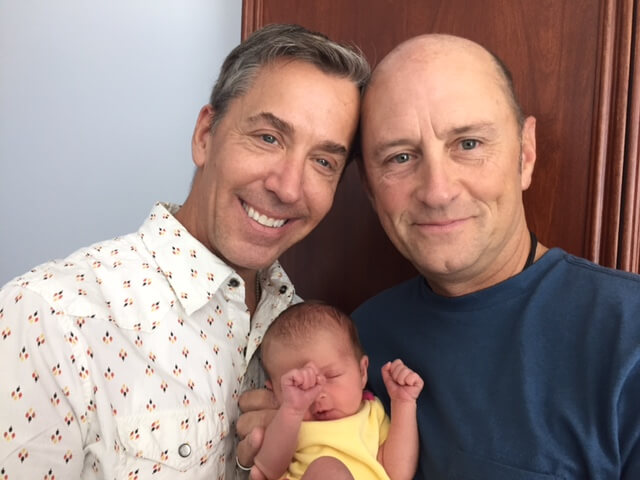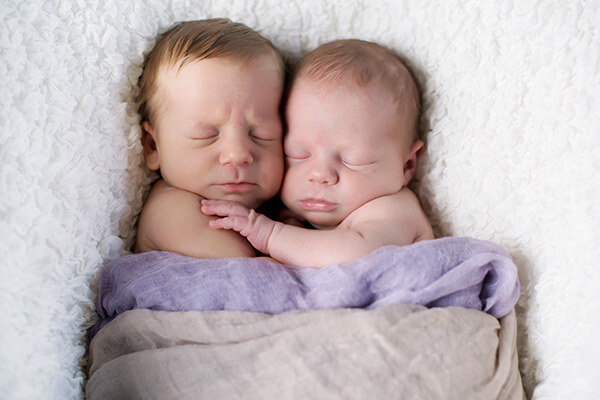
With U.S. District Court Judge Max Cogburn’s ruling in Asheville on Oct. 10, 2014, the ban on gay marriage in North Carolina was declared unconstitutional and gay marriage became legal.
With the legalization of gay marriage, however, many other issues are called forward, including gay couple adoption in North Carolina.
These recent court rulings legalizing gay marriage have made same-sex adoption possible. This article addresses the most common questions about adoption for gay and lesbian couples.
Please bear in mind that all LGBT adoptions are unique, and the circumstances vary. The information contained herein is not intended to be legal advice, and you are encouraged to speak with our qualified adoption attorneys regarding your situation and the law’s impact on you. You can contact Parker Herring Law Group, PLLC any time by calling 919-821-1860 or completing our online form.
To under some of the costs associated with various types of LGBTQ+ Adoption, read this article by MoneyGeek.com.
1. How can gay couples adopt in North Carolina?
Before the marriage equality ruling, only LGBT individuals could adopt children, as North Carolina did not recognize same-sex marriage. Now that it does, same-sex couples in North Carolina can adopt a child jointly as a married couple (with the same requirements as any married heterosexual couple adopting) or, if one individual has already adopted a child, the newly married spouse can adopt that child through a stepparent adoption.
However, North Carolina does not allow “second parent adoptions,” or adoptions where two unmarried people can adopt and have parental rights to a child. Therefore, it’s crucial that same-sex couples adopting in North Carolina get married before starting their adoption journey.
If you want a “second parent adoption,” you may be able to complete the process in another state, but you should make sure to speak to our lawyers at Parker Herring Law Group, PLLC to understand how (and if) that second parent gay adoption will hold legal merit in North Carolina.
2. If we want to complete a stepparent adoption, how long do we have to be married before my spouse can adopt my child(ren)?
You must have been married at least six months before your spouse can petition to adopt your child as a stepparent. The time you resided together prior to getting married is not counted; it is six months from the date you are married. Therefore, even if you have lived as a family for more than six months, a stepparent/gay marriage adoption cannot be completed by a spouse unless you have been married for at least six months.
However, if you were married in another state six or more months ago, you are eligible to petition to adopt your partner’s child through a stepparent LGBT adoption. North Carolina will recognize a marriage legally performed in another state.

3. What documents are required for the stepparent adoption?
In order to complete the adoption, same-sex adoption laws in North Carolina require the following documents as originals or certified true copies:
- Marriage certificate
- Divorce decree for any previous marriage of the stepparent
- Divorce decree for any previous marriage of parent/gay couple with adopted child
- Birth certificate of child being adopted
- Any court order regarding custody, child support, etc.
- Any court order terminating or waiving parental rights of the non-spouse biological parent;
- A 10-year federal and state criminal record check on the petitioning spouse
- Child abuse registry clearances from each state in which the petitioning spouse resided in the prior five years
4. Who must consent to a stepparent adoption?
The parent who has legal and physical custody must consent to the adoption by the nonparent spouse.
If the child is over the age of 12, he or she must consent to the same-sex adoption as well in writing.
5. What is required if the other “biological parent” was a sperm or egg donor?
In most cases, egg and sperm donors waive their parental rights in documents executed prior to conception. If you have such a document, we anticipate the clerk will honor that document. If there was not an agreement signed by your egg or sperm donor, then his or her written consent will be required because he or she is a legal parent.
It’s important to note that in the case of a gamete donation, only the biological parent will have their name automatically placed on their child’s birth certificate. For the non-genetically related spouse, a same-sex adoption is the only way to have their name placed on the birth certificate as well.
While parental consent can be a complicated matter in regard to gamete donation and terminating rights, Parker Herring Law Group, PLLC can help you complete the documentation and legal steps necessary to make your gay adoption in North Carolina possible. We are familiar with gay adoption in North Carolina and have experience in placing children in gay adoptions and in helping couples adopt as married couples.
6. Once the non-custodial parent gives consent, can he or she change his or her mind?
Yes. The law allows a parent to revoke his or her consent within seven days by furnishing written notice of revocation to the person specified in the consent. The seven days includes weekends and holidays. This is the law in North Carolina, so it is important to understand that there is a seven day period in which a birth parent can revoke his or her consent.
By law, if consent to a gay or lesbian adoption is obtained a second time, that consent is irrevocable upon the second execution.
A child’s (age 12 or older) consent may be revoked at any time prior to entry of the final order.
7. What happens between the time the gay adoption is filed and is finalized?
Once the same-sex adoption petition is filed, the court will order the preparation and filing of a report by either the agency that prepared the pre-placement assessment or the county department of social services. This report is required in all North Carolina adoptions with one exception; if the parent and stepparent have been married two or more years, the report is not required.
In the event the parties have not been married at least two years, the following is required:
- Two post-placement visits and a report to the court
- A 10-year state and federal criminal records check and abuse registry clearance
The Department of Social Services has provided post-placement services at a modest cost for stepparent adoptions. Licensed North Carolina adoption agencies may also conduct post-placement visits and write reports meeting the clerk’s requirements.
A post-placement assessment is nothing you need to stress about. Unlike the extensive pre-placement home study, a post-placement assessment is just designed to ensure that a child is adjusting well to their adoptive family and that the adoption has been conducted in the best interests of all involved.
8. When is the same-sex adoption final?
In North Carolina, the court will set a hearing or disposition of the LGBT adoption petition after the petition is filed; this hearing will not be set until at least 90 days have passed since filing. Unless the court orders an extension, the petition will be heard less than six months after it was filed.
If the petition is unopposed, a hearing is not required. If a hearing is necessary, the court will determine whether the adoption is in the best interests of the child. In this case, our law professionals at Parker Herring Law Group, PLLC can help you prepare for the adoption hearing.
9. Do you need an attorney to complete your LGBT adoption?
The laws governing the same-sex adoption process are quite complex and are very strictly applied. Engaging an experienced adoption attorney is an important part of ensuring that your adoption proceeds smoothly and is not subject to challenge. An adoption attorney will answer your questions about the law and the adoption process, assess the risks involved, discuss your options and develop a legally secure plan for adoption.
In addition, because of the changing legalities of same-sex adoption laws and gay couples adopting in North Carolina and different states around the country, we can help you understand just what legal protections your adoption will provide for you and your adopted child.
Gay Adoption Rights in N.C. and How We Can Help
Parker Herring Law Group, PLLC, is a full-service Raleigh family law firm. Our attorneys practice family law exclusively and handle cases regarding: adoption, separation, prenuptial agreement as well as child custody, child support, contested divorce and uncontested divorce, equitable distribution, alimony, alienation of affection, criminal conversation, domestic violence, spousal support, assisted reproduction, egg donation and surrogacy.
If you need a North Carolina lawyer for help with your family law case, call us at 919-821-1860. Our offices are conveniently located in downtown Raleigh, North Carolina. Both of our attorneys are Board Certified Specialists in family law and each has over 30 years of experience in divorce law. We handle mediation and collaborative law as well as traditional divorce litigation.
We also offer family law representation to the residents of Raleigh and the counties of Wake, Durham, Chatham and Orange, including Cary, Apex, Holly Springs, Knightdale, Zebulon, Wendell, Garner, Brier Creek, Midtown, North Hills, Morrisville, Wake Forest, Rolesville, Fuquay-Varina, Durham, Chapel Hill, Carrboro, South Pointe, RDU and beyond.
Remember, if you’re considering gay adoption in North Carolina, whether through a stepparent adoption or joint adoption, don’t hesitate to contact us right away at 919-821-1860, or contact us online to learn more about what options are available to you.
